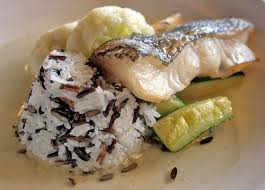The Health Promotion Board’s move to get 18 food establishments to serve 500-calorie meals is misguided. Calories alone do not define healthy meals, nor does caloric intake alone define health.
Two Snickers bars will provide the same number of calories as the HPB-approved meals, yet nobody would say that the chocolate is healthy.
Likewise, an underweight individual would be hard-pressed to reach a healthy weight with meals that clock in at a mere 500 calories. Calorie counting may be useful for some people, like athletes trying to reach a weight class, but it is not a one-size-fits-all solution.
Different people have different nutritional and caloric requirements, with different types of food preferences and restrictions. Calorie restriction as promoted by the HPB may be a simple short-term plan to reduce calorie intake and combat weight gain.
It is also extremely simplistic, attempting to reduce human health to a single variable. True health is determined by physical activity levels and nutritional intake.
Comparing current nutritional science to the HPB’s recommendations, it appears that HPB is well behind the curve.
The HPB also claims that Singaporeans are eating more saturated fat and insufficient whole grains. This is presented in a negative light, yet the latest studies suggest otherwise. Diets high in saturated fats may be more beneficial for health, say these studies. Fats are caloric dense yet promote satiety, preventing overeating while still meeting energy needs.
Communities that follow diets high in saturated fats, namely the Maasai, Eskimo and Tokelau people, have very low levels of heart disease. High-fat diets may also lead to weight loss, healthier liver, brain and skin and superior immune systems. Swedish health authorities have rejected the traditional health advice for these reasons, instead urging citizens to pursue a high-fat low-carbohydrate diet.
Whole grains are healthy because they were supposed to replace refined grains. The refining process strips away fibre, proteins and vitamins.
There is no compelling reason for a person to consume whole grains if they can find alternative sources of fibre and macronutrients. Furthermore, for people with Irritable Bowel Syndrome, celiac disease and complex carbohydrate intolerance, whole grains tend to exacerbate symptoms, forcing them to find alternatives.
The HPB needs to paint with a broad brush. Instead of generic food or caloric recommendations, the better approach would be to study the cutting edge of nutritional science in light of recent findings.
As a rule of thumb, macronutrient profile plays a more important role in healthy diets than calories alone. The HPB’s food pyramid is outdated, drawing from the United States Department of Agriculture guidelines in 1992.
Based on current research, the HPB should instead emphasise consumption of vegetables, protein and healthy fats, and as few carbohydrates, sugar and salt as possible. For the average person, calorie counting is not necessary.
But for everybody, athlete or office worker, macronutrition is essential. The HPB has to stop espousing outdated and simplistic advice, and instead promote what humans really need for good health.

